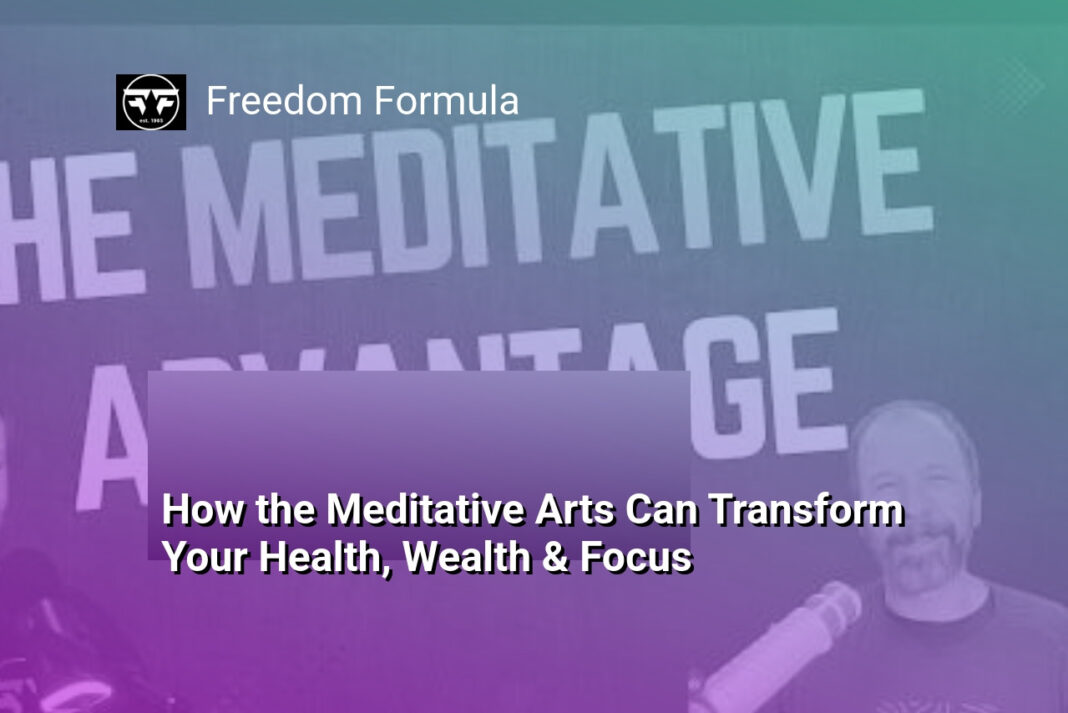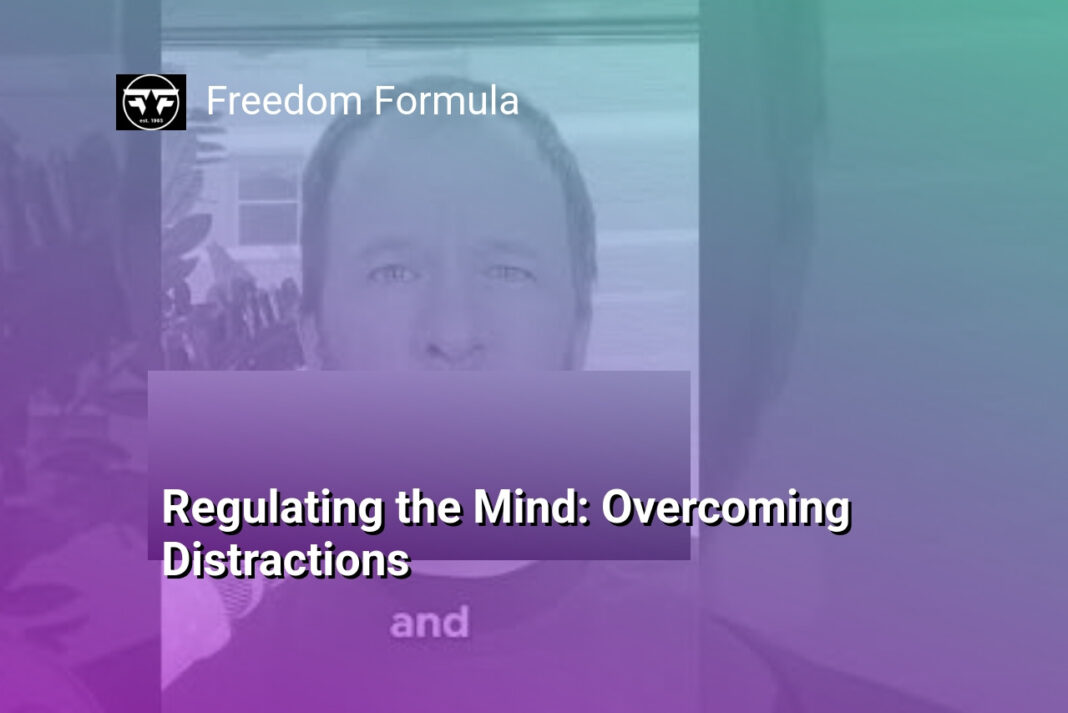The Bottom Line:
- I discovered meditation is a transformative practice that goes far beyond traditional relaxation techniques, offering pathways for personal growth across athletic, therapeutic, medical, philosophical, and spiritual domains.
- Through consistent practice, individuals can enhance mental performance, improve overall well-being, and develop a deeper understanding of themselves and their potential.
- My exploration revealed that meditation isn’t about achieving a perfectly silent mind, but rather learning to refocus and maintain awareness amid life’s constant distractions.
- By identifying personal motivations and seeking guidance from experienced practitioners, anyone can integrate meditation into their daily routine and experience significant mental and physical benefits.
- Ultimately, meditation represents a powerful tool for creating a more intentional, passionate life that transcends traditional career and personal development approaches.
The Profound Benefits of Meditation for Mind and Body
Unlocking Mental Clarity and Emotional Balance
Meditation serves as a powerful tool for transforming mental landscapes, offering practitioners profound insights into their inner emotional terrain. By consistently practicing mindfulness techniques, individuals can develop heightened self-awareness and emotional regulation. Research demonstrates that regular meditation practice reduces stress hormones like cortisol, enabling practitioners to respond to challenging situations with greater composure and strategic thinking. The neurological benefits extend beyond momentary calm, with studies showing increased gray matter density in brain regions associated with learning, memory, and emotional processing.
Physical Health and Holistic Wellness
The physiological impacts of meditation are equally remarkable, extending far beyond mental performance. Regular practitioners experience significant improvements in cardiovascular health, with documented reductions in blood pressure and decreased inflammation markers. Immune system functionality can be enhanced through consistent meditation, helping the body more effectively combat potential illnesses. Athletes and high-performance professionals particularly benefit from meditation’s ability to optimize recovery, reduce physical tension, and improve overall bodily resilience. The practice facilitates a complex mind-body connection that supports comprehensive wellness strategies.
Performance and Cognitive Enhancement
Meditation’s potential to elevate cognitive performance is particularly compelling for professionals seeking mental optimization. Practitioners report substantial improvements in concentration, creativity, and decision-making capabilities. Neuroplasticity research indicates that meditation can actually reshape neural pathways, enabling more efficient information processing and enhanced problem-solving skills. By training the mind to remain present and focused, individuals can overcome cognitive limitations and unlock higher levels of mental performance. This cognitive flexibility translates across various domains, from professional environments to personal growth trajectories, making meditation a transformative practice for holistic human development.
Five Essential Meditation Paths for Holistic Development
Unlocking Athletic Performance Through Mindful Practice
Meditation offers athletes a transformative approach to enhancing performance and mental resilience. By cultivating deep focus and presence, practitioners can tap into a heightened state of flow, where physical movements become seamlessly integrated with mental clarity. Athletes who consistently practice meditation report significant improvements in reaction times, stress management, and overall competitive edge. Techniques like visualization and breath control enable athletes to develop mental stamina that complements physical training, creating a holistic approach to peak performance.
Healing and Therapeutic Meditation Techniques
Therapeutic meditation serves as a powerful tool for managing stress, reducing chronic pain, and supporting emotional healing. Traditional medical practices from various cultures recognize meditation’s profound impact on the nervous system, immune response, and psychological well-being. Practitioners can leverage specific meditation techniques to lower blood pressure, mitigate anxiety symptoms, and enhance overall physiological regulation. Research consistently demonstrates that regular meditation practice can stimulate neuroplasticity, improve emotional regulation, and create sustainable pathways for mental and physical recovery.
Expanding Consciousness and Personal Growth
Beyond physical and therapeutic benefits, meditation offers a profound pathway for philosophical and spiritual exploration. By cultivating mindfulness and introspection, individuals can develop deeper self-awareness, expand strategic thinking capabilities, and connect with broader perspectives of existence. Philosophical meditation practices encourage practitioners to challenge existing mental frameworks, develop greater emotional intelligence, and cultivate a more nuanced understanding of personal motivations and potential. This approach transcends traditional performance metrics, offering a comprehensive framework for personal transformation and continuous self-development.
Developing a Powerful Daily Meditation and Wellness Routine
Crafting Your Personal Meditation Framework
Creating an effective daily meditation routine requires strategic planning and intentional design. Begin by understanding your unique goals and lifestyle constraints. Consider allocating specific time slots in your morning or evening that consistently align with your natural energy rhythms. Most successful practitioners recommend dedicating 15-30 minutes daily, with flexibility for shorter or longer sessions depending on personal availability.
Integrating Holistic Wellness Practices
Your meditation routine should extend beyond sitting practice and incorporate complementary wellness techniques. This might include breathwork exercises, gentle stretching, journaling, or mindful movement like yoga. By creating a comprehensive approach, you’ll enhance mental resilience and physical adaptability. Focus on developing a practice that addresses multiple dimensions of well-being: mental clarity, emotional regulation, physical recovery, and spiritual connection.
Progressive Skill Development and Adaptation
Meditation is a skill that evolves through consistent practice and intentional learning. Start with foundational techniques like breath awareness and body scanning, gradually introducing more advanced methodologies such as visualization, mantra repetition, or energy regulation practices. Track your progress by maintaining a practice journal, noting subtle shifts in awareness, stress levels, and overall mental performance. Remember that progression is non-linear, and each session contributes to your long-term growth, regardless of perceived immediate results.
Overcoming Common Meditation Misconceptions
Debunking the Myth of a Perfect Meditation Practice
Many individuals mistakenly believe that meditation requires achieving a completely blank or silent mind. In reality, meditation is about developing awareness and learning to gently redirect your attention when distractions arise. The goal is not to eliminate thoughts entirely, but to observe them without judgment. This misconception often prevents people from starting or continuing their meditation journey, as they feel they cannot meet an unrealistic standard of mental stillness.
Understanding Meditation’s Accessibility
Contrary to popular belief, meditation is not exclusive to spiritual practitioners or those with extensive training. It is a skill that can be learned and practiced by anyone, regardless of age, fitness level, or background. You don’t need special equipment, a specific physical posture, or years of training to begin. Simple techniques like focused breathing, body scanning, and mindful observation can be practiced by complete beginners. The key is to start small, be patient with yourself, and recognize that meditation is a practice of continuous learning and improvement.
Breaking Down Time and Performance Barriers
Another common misconception is that meditation requires hours of dedicated time or exceptional mental discipline. In reality, even short meditation sessions of 5-10 minutes can provide significant benefits. Modern meditation approaches recognize the challenges of busy lifestyles and offer flexible techniques that can be integrated into daily routines. Whether you’re an athlete seeking performance enhancement, a professional managing stress, or someone interested in personal growth, meditation can be tailored to fit your specific needs and schedule. The most important factors are consistency, genuine intention, and a willingness to explore your inner landscape with curiosity and compassion.
Practical Strategies for Meditation Beginners
Creating a Comfortable Meditation Environment
Establishing a dedicated meditation space is crucial for beginners. Choose a quiet area in your home with minimal distractions, preferably with soft lighting and comfortable seating. Consider using a cushion or chair that supports good posture and allows you to sit comfortably for extended periods. Natural elements like plants, soft textures, or calming colors can help create a serene atmosphere that encourages relaxation and mindfulness. Some practitioners find that using essential oils, soft background sounds, or gentle ambient music can enhance their meditation experience and help them transition into a more peaceful state of mind.
Starting with Simple Breathing Techniques
Breath awareness is a fundamental meditation technique that helps beginners develop focus and mental clarity. Begin with basic breathing exercises that involve observing your natural breath without attempting to control it. Start with short sessions of 5-10 minutes, gradually increasing duration as you become more comfortable. Practice diaphragmatic breathing, where you focus on deep, slow breaths originating from your lower abdomen. When thoughts arise, gently redirect your attention back to your breath without judgment. This technique helps train your mind to remain present and cultivates a sense of inner calm.
Developing a Consistent Practice Routine
Consistency is key to developing a meaningful meditation practice. Set realistic goals and establish a regular schedule that fits your lifestyle. Many beginners find success by meditating at the same time each day, such as early morning or before bedtime. Start with short, manageable sessions and gradually increase duration as your concentration improves. Use digital apps or guided meditation recordings if you find it challenging to practice independently. Track your progress and be patient with yourself, understanding that meditation is a skill that develops over time. Consider joining local meditation groups or online communities for support and motivation, which can help maintain your commitment and provide valuable insights into your practice.




